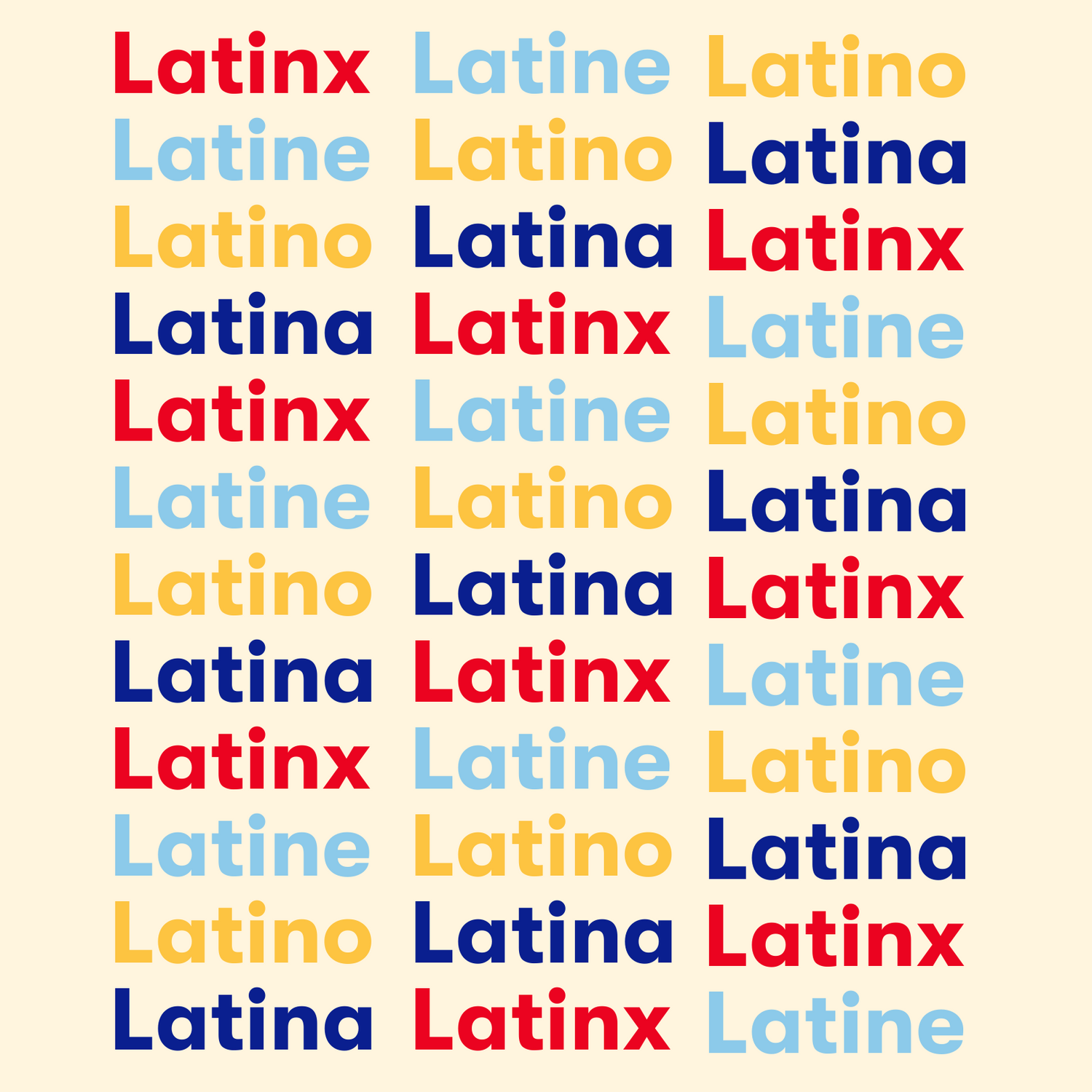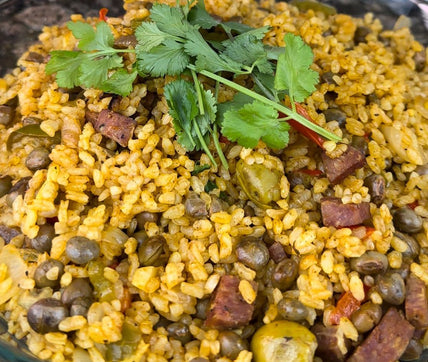
Nuestra Latinidad: Latinx, Latine & The Terms That Describe Us
We’re laying down the foundation here with some history on the terms that have come to define so many of us, and appreciate the inclusivity inherent in how we're identifying today.
by Cybele Ramirez
At Loisa, we’re always paying homage to our heritage, celebrating the culture and history of Latin flavor and tradition.
For Latinx Heritage Month, we’re kicking off a new series, “Nuestra Latinidad,” celebrating our differences and at the same time, the power of our togetherness.
Over the month, we’ll be taking a closer look at “Latinx” and the terms that define us, exploring the Black and Indigenous roots of Latin culture, and taking a tour of some of the most popular dishes that unite us.
We invite you to disfrutar la herencia with us over the next four weeks, from September 15 through October 15.
Originally named National Hispanic Heritage Week, the U.S. dedicated this time to reflect on, learn, and celebrate Hispanic and Latinx contributions to America in 1968. But it wasn’t until 1988 that the week turned into a nationally recognized month, acknowledging the independence of Costa Rica, El Salvador, Guatemala, Honduras, Nicaragua, Mexico, and Chile from Spain.
Long before the recognition, migrants from Latin America arrived in the U.S. to be publicly stripped of their individuality and their nationalities. Met with an oversimplified, highly politicized panethnicity, Latinxs and their descendants continue to be grouped together and categorized as Hispanics, Latinos, Latinas, Latines, and Latinxs.
So, we’re laying down the foundation here with a little history on the terminology that has come to define so many of us. Because, while so much differentiates the people of Latin America, including culture, language, and food, so much of what makes us different also unites us.
Decolonizing the Language
“Hispanic” and “Latinx” are not interchangeable despite their historical uses. “Hispanic” is based on language while “Latinx” is based on geography–regardless of language or race.
The term Hispanic is meant to identify people of Spanish-speaking origins, which includes most (but not all) of Latin America and Spain. Latinx refers to Latin American origin, which does not include Spain, and includes Latin American countries that aren’t Spanish-speaking.
Some Spanish-speaking Latinxs have done away with “Hispanic” as a way to decolonize their identities. In an interview for the 1992 New York Times article, "What's the Problem with 'Hispanic'? Just Ask a 'Latino,'" Sandra Cisneros, author of The House on Mango Street, said "To say Latino is to say you come to my culture in a manner of respect…To say Hispanic means you're so colonized you don't even know for yourself or someone who named you never bothered to ask what you call yourself."
For many Latinxs, “Hispanic” fosters panethnicity rooted in Spanish colonization. This contributes to the erasure of Latin American countries’ individual cultures and histories, including those that are not Spanish-speaking.
The X
To put it simply, “Latinx” is the gender-neutral alternative for Latino or Latina.
Like many romance languages, Spanish is gendered. This means nouns are either masculine or feminine. People who do not identify with the gender binary are often unrepresented. “Latinx” is conscious of our complex identities in ways that gendered language cannot be.
The term “Latinx” started tracking in public discourse in the early 2000s, with the first Google search dating back to 2004. However, the introduction of “Latinx'' was met with some resistance in Spanish-speaking Latin American communities for its tendency to anglicize identity.
In "Why I Won't Use Latinx," Josh Inocéncio explains, "While some folks do say 'Latin-equis,' which is the Spanish sound for the letter x, the most popular pronunciation is currently the English way. Thus, Latino and Latina, which are easily pronounced in U.S. American and Latin American accents are losing traction to the more Anglicized Latinx. Instead, I'm not sure why we don't use 'Latine,' which is more consistent with Spanish pronunciations and is gender-neutral...."
Despite the critique, Latinx is widely used across languages and cultures for its inclusivity and acknowledgment of the diversity within our communities. Recently, Latine has gained traction in Spanish-speaking communities. But as Yara Simón writes for Remezcla, “...while the language we use is important, perhaps what matters most is whether or not these words are helping us fight for everyone in our communities.”
Different, together
Immigration from Latin America to the United States has more than quadrupled since 1960. The increasing population of Latinxs has certainly changed the economic, social, and political landscape in the U.S. Our contributions are undeniable.
But we’re not a monolith.
In his new book, Latinx: The New Force in American Politics and Culture, Ed Morales, a journalist and lecturer on Race and Ethnicity at Columbia University, writes, “I’m drawing attention to the Latinx people as one of the primary destabilizers of American–and by extension, Western–identity. Often erased from America’s founding narrative, Latinx–in all our previous guises–have always been present as a crucial counter-narrative, a people that live in a world of many worlds, possessing an identity of multiple identities.”
There are 33 countries in Latin America, spanning the 4 regions of North, Central, and South America, and the Caribbean. There are 5 official languages across Latin America–Spanish, Portuguese, French, Dutch, and English–and dozens of Indigenous and regional dialects. Latinxs are racially diverse, identifying as White, Black, Indigenous, Mestizo, Mulatto, or Asian.
In the United States, Latinxs are often grouped together like one homogenous community. And while there is so much that unites la mezcla Latinx, the reality is much different. Each country and its culture contribute something unique to the diaspora.
No matter who you are or where you’re from, Latinx Heritage Month is a perfect time to explore the music, foods, dialects, and histories of various Latin American nations.
You may be surprised to learn just how much the very sounds and flavors that set us apart, bring us together.
En la proxima…This month celebrates the many races that exist within Latinx communities, including Indigenous- and Afro-Latinx.
In our next installment of Celebrating Latinidad, we’re looking back at the Native and Black roots of Latinx food and culture to see where some of our favorite sounds, traditions, and flavors come from.



